Earlier this year, MapAction was asked by the UN’s Office for the Coordination of Humanitarian Affairs (OCHA) to send a team to Turkey. Their mission was to provide assistance to humanitarian teams there and in Northwest Syria who are supporting the very large numbers of refugees and internally displaced people that arrived in the region during the first three months of the year following an upsurge of fighting in Aleppo.
The request was to work with two groups of organisations collaborating to collectively manage around 900 refugee camps; the Camp Coordination and Camp Management (CCCM) Cluster, and the Shelter /Non-Food Item (SNFI) Cluster.
Days before the MapAction team was due to travel, the UK and Turkey went into lockdown. Consequently, the team was compelled to switch rapidly to a remote-working approach.
Since late March, they have been helping the Clusters to get a better understanding of the locations and sizes of the camps and the needs of the people arriving and living in them. Camps vary enormously; from just a few tents to up to 93 separate sites within a single camp, and from long-term, static settlements to temporary ones.
As well as cross referencing, checking and cleaning data about camp locations received from numerous sources, the MapAction team developed some simple tools to help do this quickly and easily in future, which will also have benefits for other areas of work undertaken by the Clusters. One tool validates the location coordinates of camps recorded by teams within Syria, another matches them to Syrian administrative areas.
The MapAction team has also been locating aerial images of the camps on OpenStreetMap and using these to develop 900 map polygons showing the shape and size of each camp. As well as helping the Clusters to understand and meet the existing needs of people in the camps, this work will help to inform them about their population densities, which is particularly important in the context of COVID-19.
Updated to add: This project was shortlisted for a DataIQ Award for ‘Best use of data by a not-for-profit’.

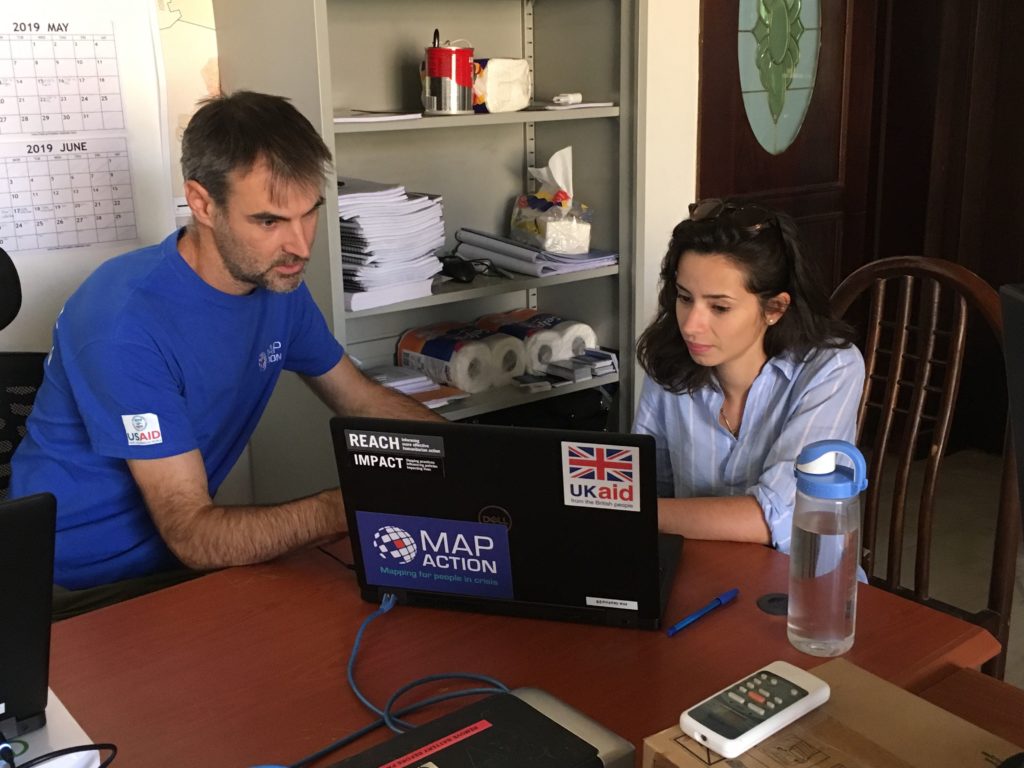
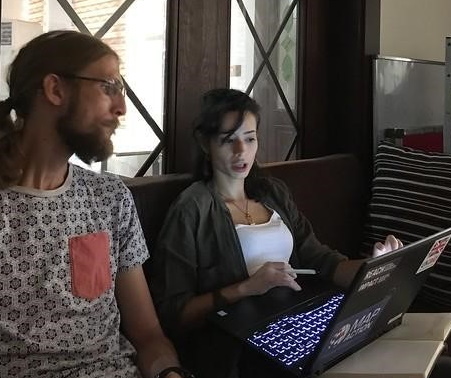
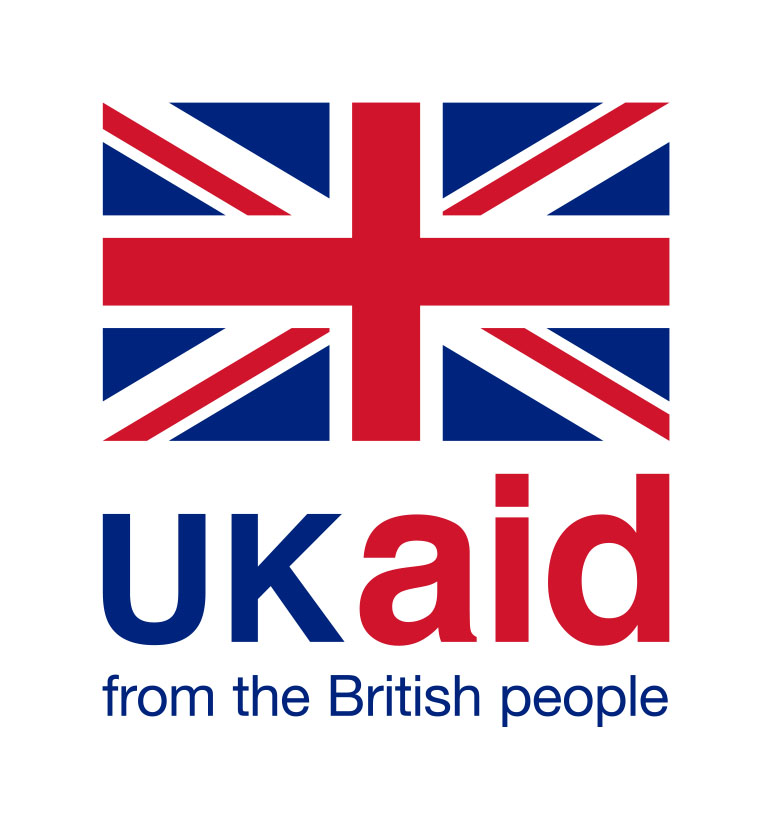
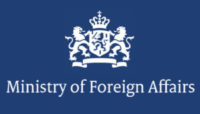
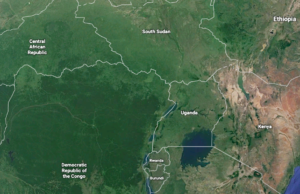
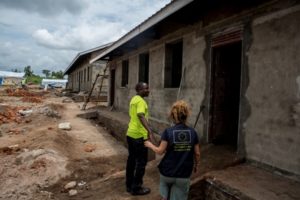
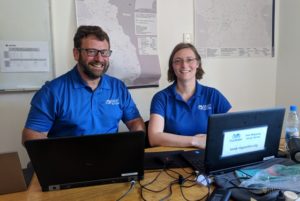 A two-person MapAction team flew to Kampala, Uganda last week to provide mapping and information management support to humanitarian teams responding to a major refugee crisis in the region. This follows a recent upsurge in conflict in the eastern part of the Democratic Republic of Congo (DRC), causing significant displacement of people into Uganda, a country that is already contending with a large influx of refugees from South Sudan. Around 1.9 million people have fled DRC since the start of 2017, with 242,000 being hosted in Uganda. The United Nations Office for the Coordination of Humanitarian Affairs (UN OCHA) estimates that 13.1 million people are in humanitarian need within DRC.
A two-person MapAction team flew to Kampala, Uganda last week to provide mapping and information management support to humanitarian teams responding to a major refugee crisis in the region. This follows a recent upsurge in conflict in the eastern part of the Democratic Republic of Congo (DRC), causing significant displacement of people into Uganda, a country that is already contending with a large influx of refugees from South Sudan. Around 1.9 million people have fled DRC since the start of 2017, with 242,000 being hosted in Uganda. The United Nations Office for the Coordination of Humanitarian Affairs (UN OCHA) estimates that 13.1 million people are in humanitarian need within DRC.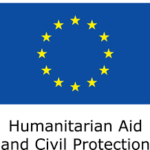 This latest MapAction deployment follows an earlier scoping mission undertaken by a two-person MapAction team during April this year to assess needs and how MapAction can help. MapAction offered support to in-country teams with analysing and reporting of gathered information to understand the needs of displaced communities. MapAction’s work is being funded by a two-year grant from European Civil Protection and Humanitarian Aid Operations (EU ECHO) aimed at strengthening effective, evidence based humanitarian decision-making. We will continue to provide support both in-country and remotely for around two months.
This latest MapAction deployment follows an earlier scoping mission undertaken by a two-person MapAction team during April this year to assess needs and how MapAction can help. MapAction offered support to in-country teams with analysing and reporting of gathered information to understand the needs of displaced communities. MapAction’s work is being funded by a two-year grant from European Civil Protection and Humanitarian Aid Operations (EU ECHO) aimed at strengthening effective, evidence based humanitarian decision-making. We will continue to provide support both in-country and remotely for around two months.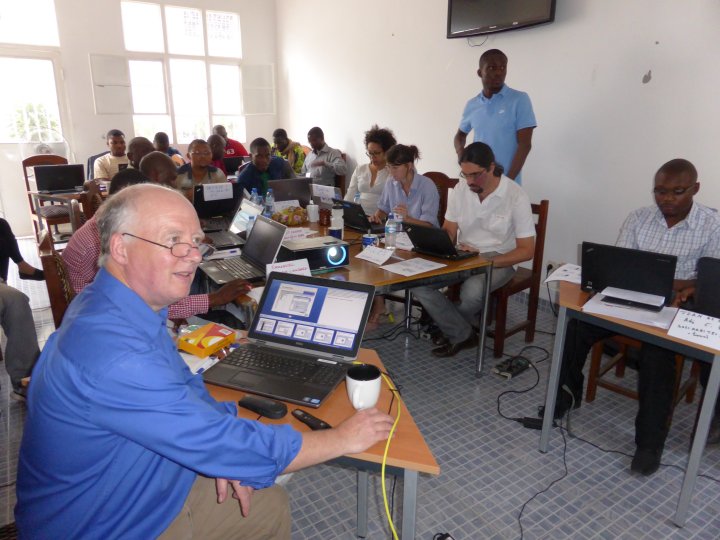 MapAction has sent two highly-experienced volunteers to Cameroon to support Unicef’s work with refugees in-country.
MapAction has sent two highly-experienced volunteers to Cameroon to support Unicef’s work with refugees in-country.